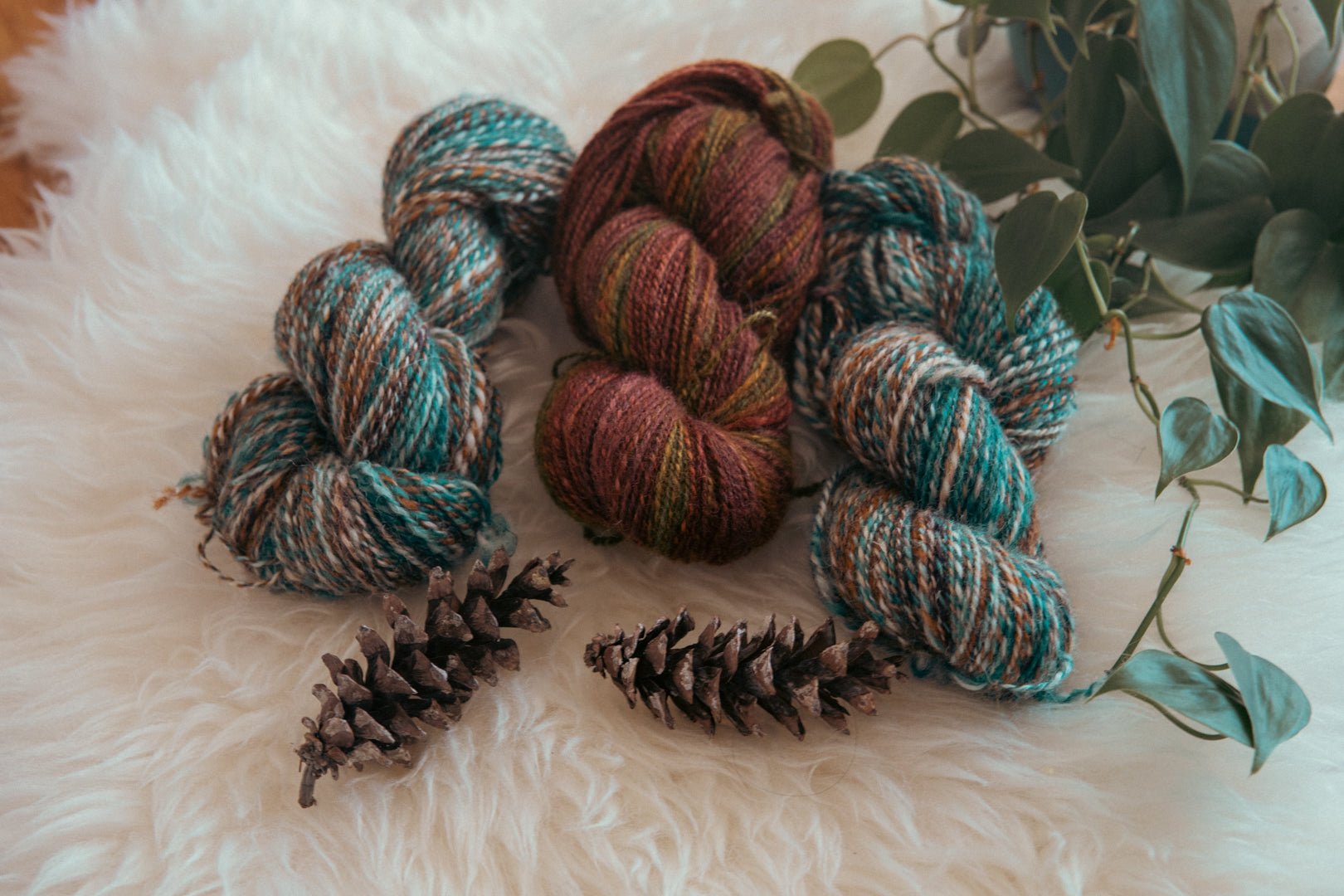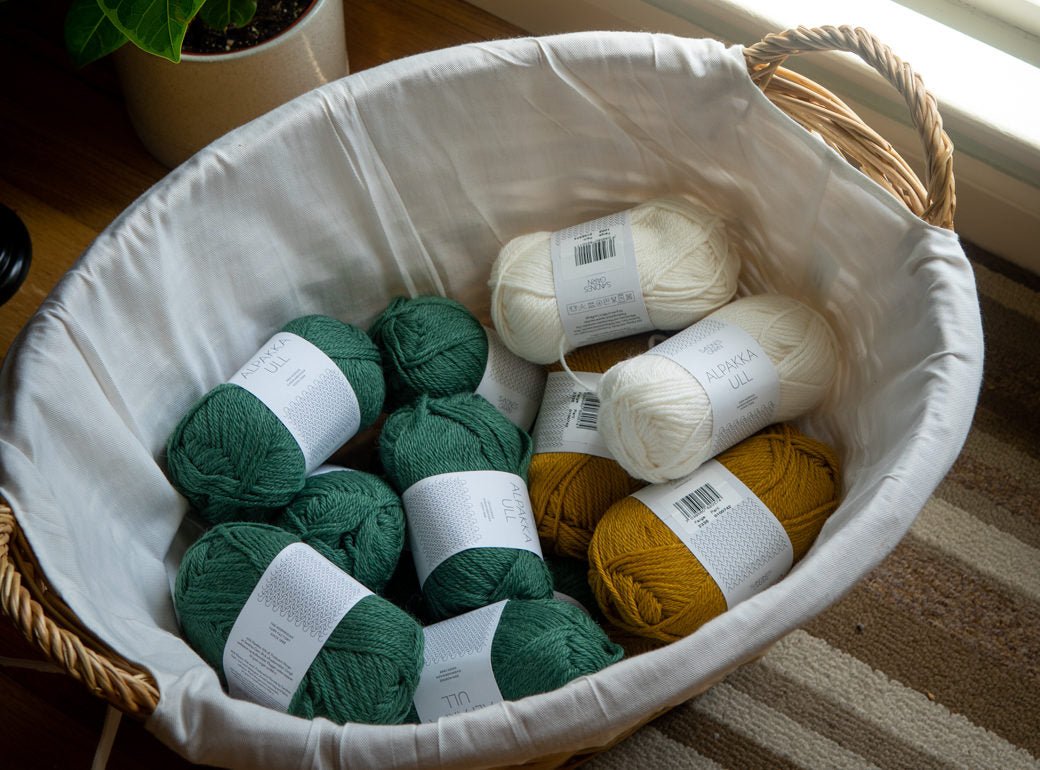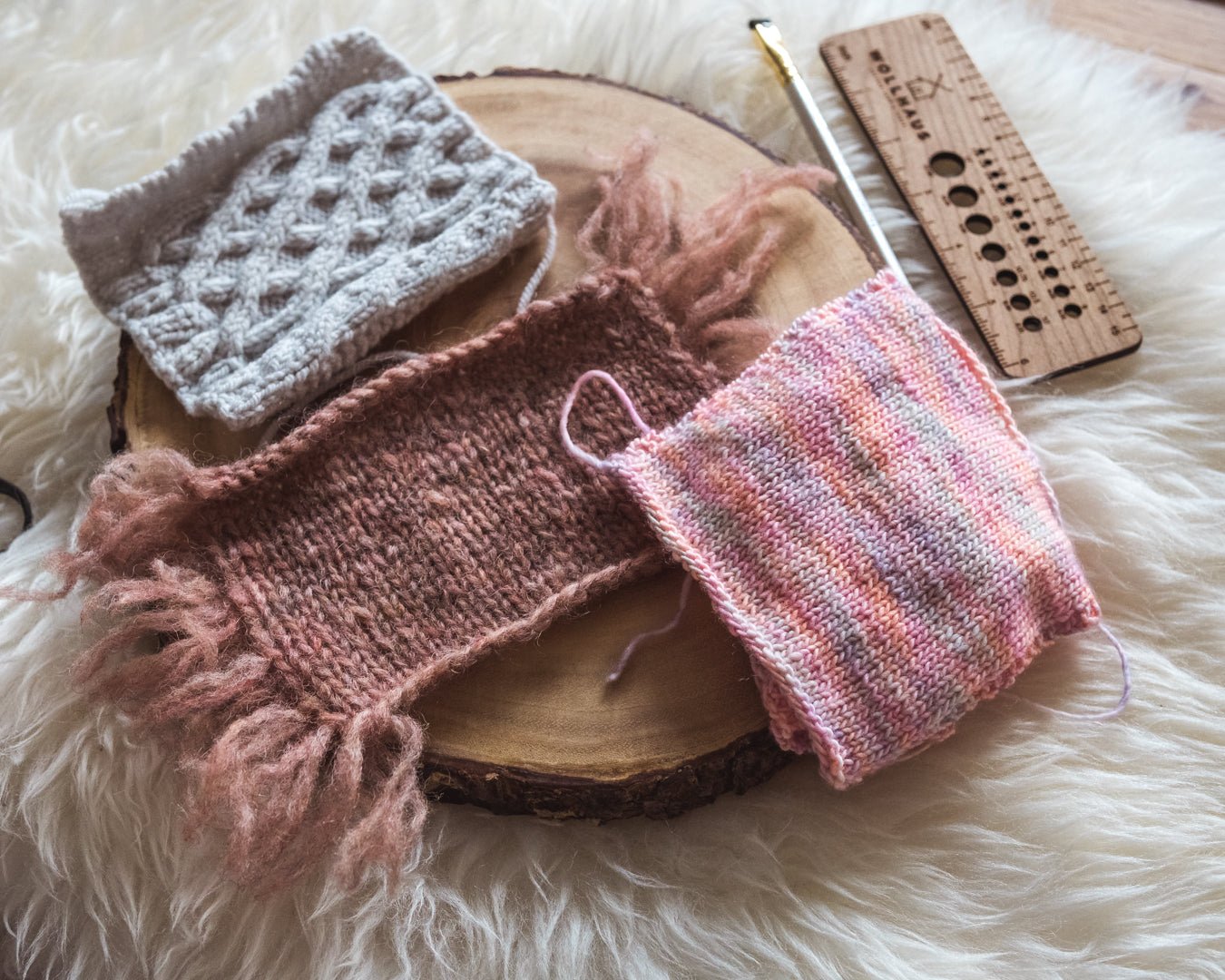
Does this yarn company align with my values?
Disclaimer: Before you go on, please make sure you have read part 1 of the yarn values series so you’re not using this knowledge to be a yarn snob and judge other people. Additionally, I know some of you reading will think this is too much work to put into researching a yarn company and you don't want to. That's totally fine. This post is for those who do want to evaluate yarn purchases against their world views and values.
Additionally, please note that your values may not be the same as mine, but hopefully this post gives you a framework to inspire you on your own journey to make value-aligned purchasing choices.
New year, new blog series. This series is for those of us who would like to try to maximize the amount of good we do with our dollars and minimize the harm that we cause with them. There are all kinds of ways to evaluate whether a purchase is aligned with your values.. And thus whether your money is going towards a company you feel good about supporting.
Of course, we want to make sure that we are knitting with fibers and yarns that we are happy with, that are beautiful, and that are suitable for the project we are knitting with. And those things are hugely important! But for the people out there who want a little values checklist… this series will get into all kinds of value metrics.
We’ll dive in next time with fiber types, other points about sustainability to consider, and more! But meanwhile…
Ways to evaluate if a yarn company aligns with your values, a brief list:
What type of yarn company is this?
This is the first question to ask, because understanding what kind of company you are shopping from will help you understand the ethics of the supply chain and help you figure out which questions to ask next.
There are yarn dyers, yarn producers/mills (or brands with whole lines that are milled and not hand dyed), and hand spinners.
For example, if the company is a yarn dyer, that leads me to look into who their suppliers are and what their animal welfare policies are. I’m interested to know if a dyer has secured mulesing-free wool, and has done the most they can to source ethically when possible. This yarn company is likely statistically (but not always) to be a very small business.
On the other hand, if a yarn is purely milled and not hand dyed, then I’m looking into how the mill workers are treated, where the mill is located, and where they source their wool. This is important because sometimes, you can tell a lot about a yarn company if it’s milled in a less wealthy country using less expensive labor there to solely make profit for someone living in a wealth nation (the owner).
If the yarn is hand-spun, I’m asking questions like… who spun this? Where do they live? And how come it was spun there and not here where I am, where there are also hand spinners? Is it to increase profit and lower pay? These are the questions that need to be asked because handspun yarn is super labor intensive. If I’m buying handspun yarn, and especially yarn that can’t be achieved by conventional machine milled methods (ie. art yarn), then I want to buy from someone local to my region and support a small business here rather than a company that outsources the spinning to another country.
Is there a value statement on their website? Do the stated values align with the values you care about?
This is the most obvious, basic, surface level thing. Their actions may not be in accordance with stated values, but at least you have a starting off point if there ARE stated values.
Plus, If they donate towards an org, look into that org. This info is usually on their About page on their website.
Is the yarn company LGBTQIA+ or POC owned?
This one pretty much speaks for itself. If you are into supporting marginalized makers in our community and you have a goal towards supporting more POC owned or LGBTQIA+ owned companies, then this is probably something you want on your checklist.
If a company is a larger company with many employees, it's useful to see if there are statements of diversity initiatives, how many of the top level staff are POC or LGBTQIA+, and how diverse the overall company is in general. There are organizations such as Pull Up For Change doing this work in multiple fields when it comes to larger companies.
How do they treat their workers? Do they have workers?
This is probably more obvious for larger companies and is one of the harder things to find out. However, in recent years, some companies have become known to be hostile workplaces.
Some folks prefer to support mainly small family businesses that have very few employees, and that’s great! If this info is easily accessible and viewable on their website, then that helps you suss out which companies are which.
Does the yarn or patterns in the company take inspiration from elements or intellectual properties that are appropriating from POC or LGBTQIA+ but they are not themselves part of those demographics?
If the yarn company is selling patterns or finished objects that are in patterning or prints that are associated with Indigenous art, but they are not owned by Indigenous people, then this is a problem. This goes also for things like Moana, Pocahontas, Mulan, and any given popular property with a POC lead.
If the marketing says that the yarn is being made by POC or made from fiber raised by POC, are the owners POC or are they white people profiting off the work of POC?
This is a tricky one, and I’ve myself fallen for this marketing over and over. Often times the marketing can be so slick but when I look closer… the POC are not the people profiting from this work. If the marketing for a company relies on the fact that some part of the process of production supports POC communities, the company should be owned by and led by a POC, ideally from that community. We don't want white saviorism here!
Do the yarn company’s collaboration partner designers and other makers align with your values?
This one is a bit more niche, but if they frequently collaborate with people who have caused harm to minority communities.. Then maybe it’s a good chance to talk to them and dialogue with them about it or spend your money elsewhere.
How are the animals treated?
There are numerous standards that measure whether a fiber is raised/grown, milled, and dyed in a way that is environmentally responsible. Usually this info can be found on the about or bases page for dyers–if a dyer is sourcing only mulesing-free yarn, they’ll tell you. If their yarn has certain standards (such as OEKO-TEX, GOTS, or REACH), then trust me, they’ll be really excited to tell you about it. If none of this information is not in any of their listings or pages.. Then you can pretty much bet their fiber is not certified.
What is the global supply chain of how the fiber traveled from being on sheep, to becoming yarn, to becoming dyed? To traveling to the store or to the end user?
If you buy a yarn that’s 100% produced in your region, you can be that traveled a bit less to get to you. This can also be a little tricky, because in many cases, if you are only buying one or two things, driving to the store is higher impact than having it shipped to you via USPS from a relatively local warehouse! However, it’s a useful thing to think about. I try to make my orders from overseas a little bigger to reduce the number of orders I need to make.
If the product is advertised to help an underserved or marginalized community out... Is it replacing local artisanship and local industry?
The famous big company that did this was TOMS. They’re a super good example, because of their “buy shoes, give a pair of shoes” model. It turned out that by giving shoes away, in some of the regions they were supposed to be helping, they displaced local cobbler artisanship. When a company claims to do good work in an underserved region, be really cautious and think critically about whether it’s just performative action or whether it actually helps.
In conclusion...
By the way, I think there’s room to re-evaluate for yourself whether a company is listening to good critique, and whether it has changed and is doing better now for the world. We may not always agree as a community whether X company has changed, just as we won't always agree on which values are prioritized for us… but I do think there’s room for improvement and grace, as long as an organization is actually doing the work. Meanwhile, though, there’s a gajillion other companies I can spend my money at and that’s usually what I end up doing.
Life is too short for me to come back and constantly be asked to re-evaluate a company I have already struck from my list… which is why I will not be naming any names in this entire blog series. I’m not interested in endlessly debating individual companies–I’m more interested in providing frameworks for you to do that evaluation.
These are just some of the ways that I myself evaluate yarn companies that I’m considering working with… And I don’t really make decisions or strike anyone out based on just one of the metrics alone. I think it is just helpful to think about some of these things and at least consider them in my personal making process and in how I conduct business. Plus, these might not even be the same values that you're looking for, but I hope they'll get you started.
I hope that this list was helpful in getting your brain started on questions we can be asking about where we are spending our cash monies! I don’t always ask every single one of these questions, but each one gives us a little bit of insight into how a company operates and aligns with our values (or not).
Next time… the sticky relative ethics of different types of fiber! Don’t forget to subscribe to my newsletter if you haven’t already if you want to receive emails about every post!
The work that I do on this blog is ongoing and time consuming. If you found this post helpful, you can support me in this work by joining my monthly subscription or buy me a coffee one time at my Ko-fi page:




Leave a comment
This site is protected by hCaptcha and the hCaptcha Privacy Policy and Terms of Service apply.